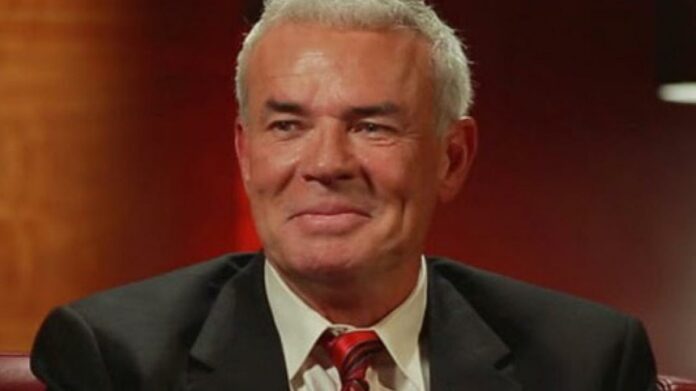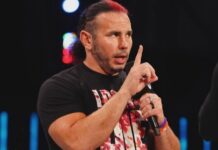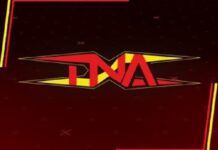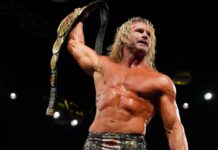
The following is an additional passage from Eric Bischoff’s new book, Grateful, which covers his time in TNA Wrestling after serving as the president of WCW and serving as the WWE RAW General Manager:
In the time since WCW was sold to WWE, the unfortunately-named TNA Wrestling (as in Total Non-Stop Action) was founded in 2002, operating exclusively as a pay-per-view operation in its infancy. In 2004, the company struck a deal with Fox Sports Net, and in 2005, it secured a Saturday night time slot with Spike TV (now known as the Paramount Network). Despite the presence of numerous former WCW (and WWE) stars on its roster, and the fact that many of the production staff in TNA had worked for me in WCW, the notion that somehow TNA was a ‘spiritual successor’ to WCW struck me, quite frankly, as ridiculous.
To be honest, I was never interested, at any level or at any time, in potentially working for TNA. First and foremost, I hated the TNA name (‘T and A’ – do you get it? It’s just so clever.). When I heard about it for the first time, I thought, ‘This just reeks of Vince Russo.’
As of mid-2009, Russo was apparently the Head of Creative at TNA, having previously failed in a similar role at WCW. His approach to creative, which happened to be incredibly juvenile, was reflected, I thought, in the name of his current employer (did I mention that I hated the fucking name, ‘TNA?’). To me, it reflected a lack of everything that the wrestling business needs to be successful. It might be fitting for a fraternity, maybe – you could say, once a week or something, ‘Let’s have a TNA wrestling match in the frat house with a bunch of sorority girls. Let’s smoke and drink and all have sex when it’s over.’
That would at least make sense, but to have a nationally televised show on Spike called ‘TNA’…that was embarrassing to me. Even though I had no involvement with the company, I was embarrassed for the people who did. Moreover, my feeling at that time was really, ‘Been there, done that.’ I thought, ‘What could TNA provide me that I don’t already have?’ I didn’t need the money, and I was making far more, at that particular time, with BHE (close to a million dollars a year) than I ever had in professional wrestling. There was no motivation – financial, personal or otherwise – to even entertain a role with TN-fucking-A.
Jason and I were having so much success, with BHE, that I doubted I would even have time to get involved in wrestling again. I was basically thinking, ‘Okay – I went through the WCW journey, and it didn’t end up the way I wanted it to end up, but the WWE opportunity came along, and it was a way for me to kind of write the end of my own story in the wrestling business.’
I had a blast working with WWE, and the more time passed since my last on-screen appearance, the more I realized that it was how I wanted my public career in the wrestling business to end. From everything I had heard, anyway, TNA wasn’t interested in bringing me in.
I attribute that partly to the fact that Dixie Carter, the President of TNA, wanted so badly to be recognized as the ‘female Vince McMahon’ that she didn’t want Eric Bischoff as part of her company. Perceptually, if I was to be a part of TNA, Dixie would no longer be seen as the one ‘calling the shots’, and I think that was a little bit of a problem for her…
The preceding excerpt was taken from Grateful, the new book by Eric Bischoff and Guy Evans.







